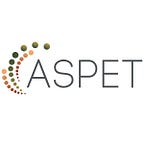By Sabrina Rahman Archie, PhD
Are e-cigarettes less harmful than tobacco cigarettes for pregnant smokers? I believe the widespread use of electronic cigarettes or vaping among young populations including pregnant women presents a serious public health concern. It’s important to fully consider the popularity of maternal vaping, its potential health consequences on pediatric health, the current policy regulation on e-cigarette use and the necessary steps required for policy development to protect the next generation.
Vaping, also known as an electronic cigarette or e-cigarette use, is the use of a battery-powered device to inhale an aerosol derived from a heated liquid compound which may contain nicotine along with flavoring agents and other chemicals. It was introduced into the U.S. market in 2007 as a safer alternative to conventional tobacco smoke and has become extremely popular among all age groups and sexes. Apart from recreational purposes, it is also being used for smoking cessation and tobacco replacement therapy [1].
E-cigarette use is increasingly prevalent among pregnant women, ranging between 5% and 15% of the surveyed pregnant population within the last five years [2]. Several factors are responsible for e-cigarette popularity among pregnant women, including curiosity about vaping or as a form of tobacco replacement therapy. In fact, sometimes pregnant women perceive e-cigarettes as a safer alternative to tobacco smoke and switch to e-cigarettes during pregnancy [3].
“…several studies have reported that maternal vaping may increase the risks of fetal health outcomes…”
The main ingredient in most e-cigarette products available on the U.S. market is nicotine at various concentrations. However, a vast array of other toxic chemicals including any number of approximately 7000 flavoring agents, humectants, contaminants, (e.g. metals, formaldehyde, acrolein, and tobacco-specific nitrosamines) as well as thousands of unknown chemicals are present in e-cigarette liquid [1]. When it was introduced 15 years ago, there were limited preclinical and clinical studies to ensure the safety of e-cigarettes on maternal and pediatric health. Since then, however, several studies have reported that maternal vaping may increase the risks of fetal health outcomes including but not limited to pre-term birth, reduced birth weight, cerebrovascular, respiratory, and cognitive dysfunction [1, 4–7] . These preclinical findings should raise concerns among those who believe that the use of e-cigarettes is less harmful than traditional tobacco cigarettes for pregnant smokers.
There are policy regulations under the U.S. Food and Drug Administration and at the state level that regulates tobacco policy, including e-cigarettes. As of today, there is no legislative, regulatory or policy guidance for e-cigarette use during pregnancy. Recommendations for e-cigarette use during pregnancy can be implemented based on maternal smoking regulations and current trends in maternal vaping which may include public awareness; regulation on labeling; education and training; research and surveillance; reducing the affordability; regulation on e-cigarette advertisement; multi-sectoral collaboration and industry responsibility.
Evidence exists that maternal vaping may pose potential risks for maternal and fetal/postnatal health. Hence, policy development for the regulation of maternal vaping is required to address this emerging public health concern. By implementing the recommended policy guidance, policymakers can raise awareness, promote research and provide support for pregnant women. Consequently, this can help to reduce the prevalence of maternal vaping and protect the health of neonates as well as mothers.
Sabrina Rahman Archie, PhD is an ORISE Fellow at the U.S. Food and Drug Administration. She earned her PhD from Texas Tech University Health Sciences Center where her research was focused on evaluating the impact of maternal vaping on postnatal health using in-vivo model.
